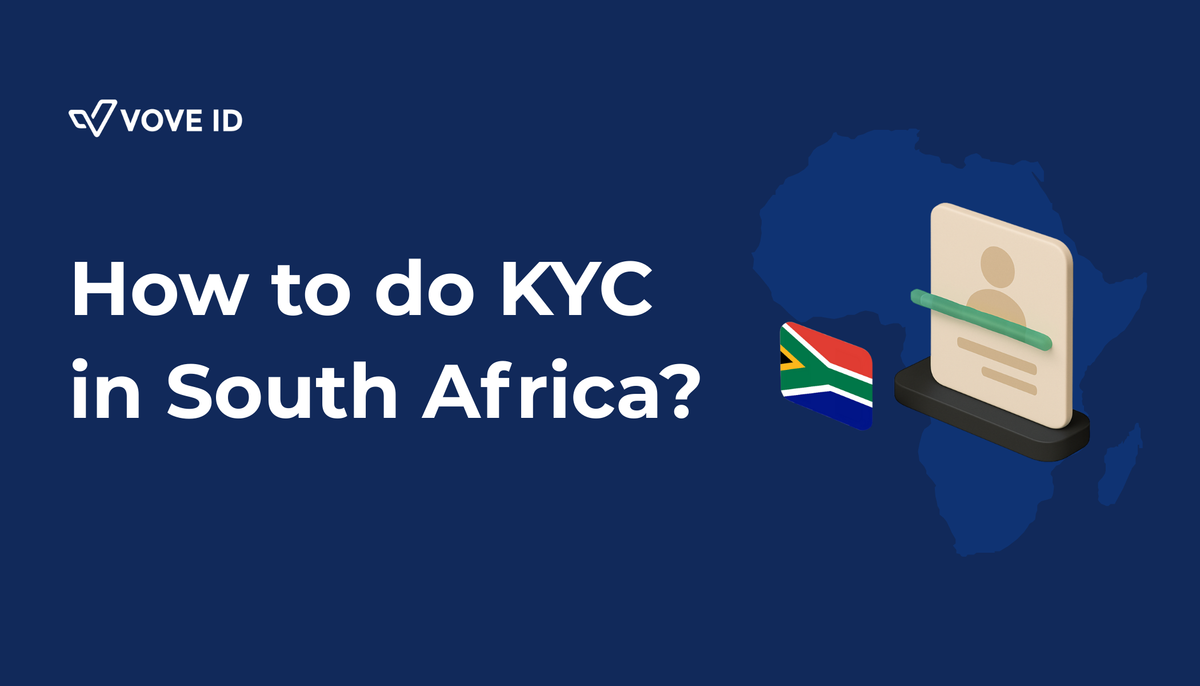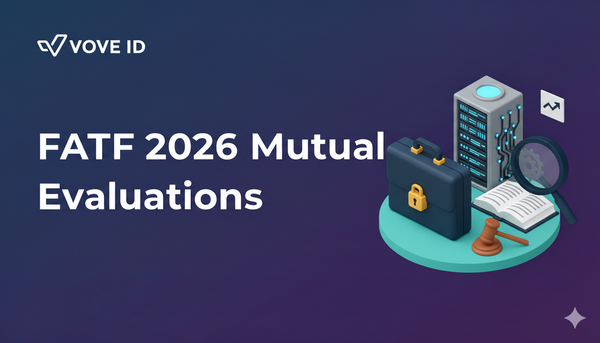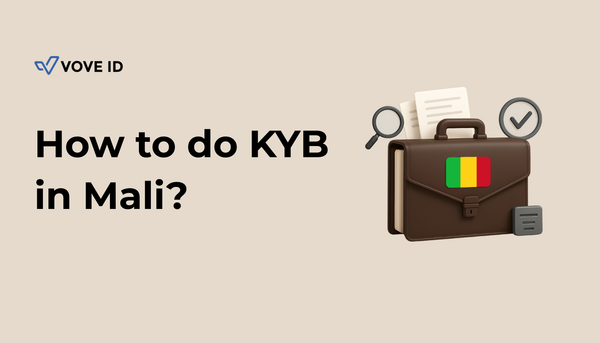How KYC Is Driving South Africa’s Financial Future
Master KYC South Africa with VOVE ID’s AI-powered eKYC. Ensure FICA compliance, secure fintech growth, and thrive in a $405B economy. Book a demo!

South Africa’s Financial Hub and KYC’s Role
South Africa, Africa’s second-largest economy with a GDP of $405 billion in 2023, is a fintech and banking powerhouse. Its financial sector, centered in Johannesburg, thrives on innovation but faces risks like fraud and money laundering. KYC (Know Your Customer) ensures identity verification in South Africa aligns with the Financial Intelligence Centre Act (FICA) of 2001, with enhanced enforcement expected in 2025. AI-driven KYC solutions like VOVE ID streamline compliance, securing this dynamic market.
What KYC Means for South Africa
KYC verifies customer identities, preventing financial crimes and ensuring compliance with the Financial Sector Conduct Authority (FSCA) and South African Reserve Bank (SARB). From Cape Town startups to Durban SMEs, KYC builds trust and meets global Financial Action Task Force (FATF) standards.
Why KYC Matters
KYC is vital for:
- Fraud Prevention: Industry reports note identity theft fuels 40% of financial crimes. KYC blocks fake IDs.
- Compliance: FIC enforcement data shows fines up to R100 million (~$5.5 million USD) in 2023 cases.
- Trust: Verified users boost confidence so South Africa’s fintech drew $800 million in 2023 investments.
KYC supports economic stability.
KYC in Action: Cape Town’s Rise
Consider ZestPay, a hypothetical Cape Town fintech scaling mobile payments. It verifies South African IDs (Smart ID or Green Book) and checks addresses via utility bills. Transactions over R24,999 (~$1,400 USD) trigger FIC reporting, routine in cities but tough rurally, where the Department of Home Affairs estimates only 50% have formal IDs. “KYC automation cut our onboarding time by 80% while meeting FSCA rules,” says ZestPay’s compliance lead. Digital KYC with biometrics bridges this gap, ensuring AML compliance in South Africa. Interested in regional KYC? Check our Nigeria KYC guide.
Key KYC Requirements
For KYC South Africa, businesses need:
- Identity Documents: Smart ID, Green Book, or passport, and AI validates authenticity.
- Proof of Address: Utility bill or bank statement, less than three months old.
- Enhanced Due Diligence (EDD): Extra checks for Politically Exposed Persons (PEPs).
- Screening: Cross-check against FSCA sanctions, FATF, and PEP lists.
- Monitoring: Flag suspicious transactions per FICA thresholds.
How KYC Works
A solid KYC process follows these steps:
- Data Collection: Gather name, ID number, and address.
- Verification: Use OCR and biometrics to match IDs against Home Affairs databases, accuracy up to 95% with quality data.
- Risk Assessment: Screen for sanctions or adverse media.
- Ongoing Monitoring: Track activity for red flags.
Tech Powering KYC
AI transforms identity verification South Africa:
- Speed: Real-time ID checks cut onboarding to seconds.
- Accuracy: Facial recognition verifies live users.
- Scale: Digital profiles sync with FIC systems.
Industry trends show 65% of South African firms now use eKYC, up from 30% in 2021.
South Africa’s KYC Framework
FICA 2001, amended in 2017, shapes KYC:
- FIC Oversight: Mandates customer due diligence and reporting.
- AML Rules: Requires risk-based approaches for high-risk clients.
- POPIA 2013: The Protection of Personal Information Act ensures data consent.
South Africa’s FATF compliance, reinforced post-2023 grey list exit, drives enforcement. FSCA’s 2024 note emphasized, “Digital fraud demands robust KYC.”
KYC Challenges
South Africa’s KYC landscape faces hurdles:
- Access Gaps: Rural areas lack formal IDs, only 50% coverage limits onboarding, per Home Affairs estimates. Mobile KYC helps but needs scale.
- Fraud: Synthetic IDs rise. AI detects fakes but requires updates.
- Privacy: POPIA mandates consent, adding steps for SMEs.
Benefits of Strong KYC
Effective KYC South Africa delivers:
- Credibility: Verified users attract partnerships in Joburg’s markets.
- Growth: Fuels $800 million fintech investments by easing onboarding.
- Security: Cuts risks of fines and fraud, stabilizing finances.
2025 Updates:
According to the South African National Treasury, significant strides have been made in addressing the Financial Action Task Force's (FATF) recommendations. As of February 2025, South Africa has successfully addressed 20 out of the 22 action items identified by the FATF. The remaining two items pertain to demonstrating a sustained increase in investigations and prosecutions of serious and complex money laundering and terrorist financing activities.
Take Action
Navigating South Africa’s KYC landscape can be complex, but compliance doesn’t have to be a burden. VOVE ID provides businesses with seamless, automated KYC solutions designed to ensure compliance without compromising efficiency. Explore our compliance tools today and future-proof your compliance strategy.




